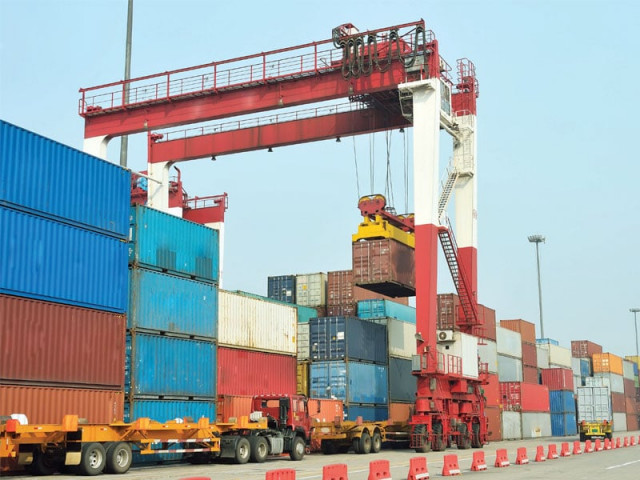Selling the family’s stake: ‘A prudent decision, not emotional’
As per agreement, PICT is selling a 35% stake to ICTSI.

Is it tough to give up the majority share in a business with a market capitalisation of $180 million after one has expanded it gradually over a decade? While many businessmen will find it difficult to sell off their family’s stake in an arguably lucrative port business, prudence clearly overrides emotions as far as Pakistan International Container Terminal (PICT) Director Aasim A Siddiqui is concerned.
One of the three terminals that handle containerised cargo in Pakistan, PICT is currently undergoing a restructuring in its shareholding structure with a global port operator, International Container Terminal Services (ICTSI), expected to acquire up to 55% stake in the company.
“There is certainly an element of emotional attachment, but it should not hinder prudent decision-making. The moment you get overly attached with your business, you are bound to make wrong decisions,” said Siddiqui in an interview with The Express Tribune.
After the share purchase agreement (SPA) between the ICTSI and controlling shareholders of PICT for the acquisition of up to 35% outstanding shares, ICTSI has now made a public-sector offer at the Karachi Stock Exchange (KSE) to purchase more shares in the PICT at a price of Rs150 per share. Once the deal is materialised, four out of PICT’s seven directors are expected to be from ICTSI. However, PICT Chairman Captain Haleem Siddiqui and the company’s CEO are going to continue their respective positions until the completion of their employment terms in two and a half years.
“That is why I call it a joint venture instead of a takeover. We are not going to dissociate ourselves from PICT. Even after two and a half years, we will still have a significant stake in the company,” he said.
He said that the ICTSI will still have the option to buy up to 7% shares from Premier Mercantile Services – the sponsor of PICT – and the Jahangir Siddiqui Company (JSCL) after acquiring 35% shares under the SPA. “So we expect that we will be left with 41% shares, ICTSI will have 42% shares, and the public will have the rest of 17%,” he said.
Replying to a question about the public-sector offer of ICTSI at the per-share price of Rs150 (valid until October 10) despite the fact that the price on the KSE at the end of the trading session on Friday was Rs155.75 a share, Siddiqui said he expected large funds will sell their PICT shares. “While small shareholders will hold onto their shares, large shareholders are likely to sell them off. They make decisions based on dividend yield. When the share price was Rs70, a 15% dividend yield looked good. But now that it has gone up to Rs155; an Rs12 dividend per share does not seem attractive from their perspective.”
But why will someone sell off its majority stake in a business whose profit after tax for the nine-month period ended March 31, 2012, was over Rs1.1 billion, up by 22% compared to the corresponding period in the preceding fiscal year?
“Banks had high equity requirements for Pakistan International Bulk Terminal (PIBT),” he said, while referring to the PICT’s wholly owned subsidiary, which is a dirty cargo terminal being developed at a cost of $185 million at Port Qasim with a capacity to handle up to 8 million tons per annum of coal, clinker and cement.
“We had two options. We could either get a loan against the balance sheet of PICT or raise capital to meet PIBT’s equity requirements by selling some of our stake in PICT. We chose the latter option,” Siddiqui said, adding that the concession period for PICT, which was based on a 21-year build-operate-transfer basis, is to expire in the next 10 years.
“Therefore, if our earnings per share are Rs12, theoretically speaking, we are booking a 10 years’ profit upfront; and using those upfront gains to invest in PIBT,” he said. “All things being equal, the decision is in the best interest of our shareholders.”
Published in The Express Tribune, September 3rd, 2012.



















COMMENTS
Comments are moderated and generally will be posted if they are on-topic and not abusive.
For more information, please see our Comments FAQ